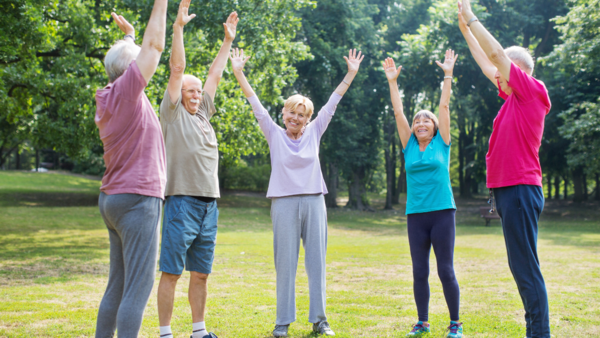As they say,
laughter
is the best medicine. It improves
immunity
, lifts the spirits, and fortifies bonds between people. Even though it's easy, laughing more often during your day can have a big positive impact on your physical and emotional health. There are several physiological and psychological advantages linked to laughter. A modern method called laughter yoga (LY) encourages practitioners to imitate laughing in order to produce favorable psychological effects.
There's no denying that laughter has immense advantages for both mental and
physical health
, as evidenced by research. Laughter yoga originated as a small movement that combined intentional laughing with breathing techniques, but it has now spread around the world. There are currently hundreds of clubs throughout Asia, Europe, and North America that are generally free to enter.
Laughter yoga awakens a deep-seated yearning to laugh that is being suppressed for many reasons. Young youngsters have hundreds of daily laughs. However, the fun fades as we age because our brains are programmed to control our emotions in response to the requirements of others. We grow empathetic. However, we are also urged to quit laughing and take life seriously. Maybe you can recall receiving a reprimand for improper laughing from your parents or teachers. Many times, people assume that laughing indicates improper learning, working, focusing, or showing respect. This is justified occasionally, but not always.
Benefits of laughter yoga:
The body releases
endorphins
when we laugh, which have a natural painkilling effect. According to a recent study that was published in the journal Preventive Medicine, older adults who laugh frequently with friends and family may be far less likely to experience health issues in the future than those who do not. Additional research published in Nursing & Health Sciences shows that laughing dramatically inhibits stress chemicals like cortisol, lowers adrenaline levels to lessen anxiety, and triggers the body's own relaxing mechanism.
To assess the impact of a single LY class on the psychological health of those who willingly attended such sessions, an exploratory pilot study was conducted. Recruited from LY clubs in Melbourne, Australia, forty-four women participants (mean age, 58.86) completed
well-being
questionnaires both before and after the LY session. Significant increases in happy feelings and decreases in the intensity of stress and anxiety symptoms were reported after the LY session. Significantly, those who had lower levels of well-being before the lesson saw the most improvements in their state of wellbeing. According to these results, LY may be a useful strategy for momentarily elevating well-being.

Furthermore, sharing a laugh with others can improve relationships and foster a sense of social connectivity and camaraderie. It also contributes to emotions of safety and security, which makes one feel more at ease. It is widely believed by academics that the body is incapable of differentiating between genuine, spontaneous laughter and false laughter, so just forcing yourself to laugh can have positive effects. However, laughing yoga has almost no drawbacks and is accessible to individuals from all backgrounds.
Laughing yoga is becoming becoming increasingly well-liked as a lighthearted method to
de-stress
.
Various movements, improv, and breathing exercises are taught in a normal session to help you become more present and remove your mind from the stresses of everyday life. When combined, these techniques may help you laugh intentionally and authentically, which may help reduce stress.
There are very few drawbacks, and the majority of individuals can engage with ease, even though further research is required to fully understand its advantages.
All things considered, laughing yoga is an excellent method to relax, have fun, and rediscover the joy of laughter.
Benefits of the superb Surya Namaskar! Ira Trivedi Mantena's easy steps to sun salutation

 1 year ago
315
1 year ago
315




























 English (US)
English (US)